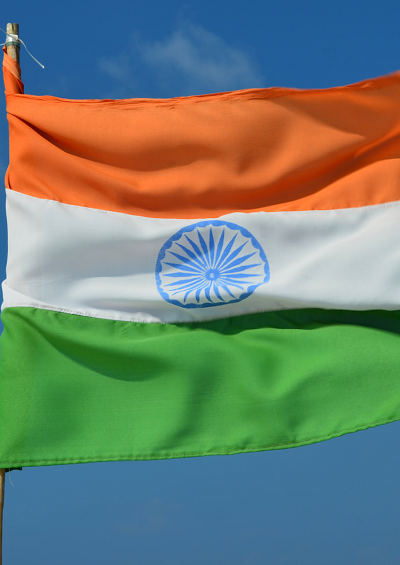India’s Muslims: Rich Hunting Ground for Middle Eastern Rivals
How Turkey’s President Erdogan is seeking to expand his leadership claim in the Islamic world in India.

Credit: Sanyam Bahga - www.flickr.com
Takeaways
- There is evidence that India’s Muslims are on Erdogan’s radar. Indian Muslims are too big a community to ignore.
- Indian Muslims, 180 million strong, constitute the Islamic world’s second-largest community.
- Erdogan’s efforts to create inroads into the Indian Muslim community are no doubt motivated by the Hindu nationalism of Narendra Modi.
- The Turkish-Saudi competition for Indian Muslim hearts and minds has great potential for real fallout in India. It is pure grit on the mill of Hindu nationalists.
Indian Muslims, 180 million strong, constitute the Islamic world’s second-largest community, after Indonesia, and well ahead of Turkey and ten times larger than Saudi Arabia’s population.
Thus, when the ever expansionist and ambitious President Recep Tayyip Erdogan recently declared that Turkey was “the only country that can lead the Muslim world,” it stands to reason that he wasn’t just thinking of Islamic states in the Middle East, South Asian countries like Pakistan and Bangladesh or the smallish Balkan countries.
On Erdogan’s radar
Increasingly, there is evidence that India’s Muslims are on Mr. Erdogan’s radar. Indian Muslims are too big a community to ignore, especially in the context of Mr. Erdogan’s rivalry with Saudi Arabia for leadership in the Muslim world.
The gruesome October 2, 2018 killing of journalist Jamal Khashoggi in the Saudi consulate in Istanbul has catapulted the rivalry to center stage.
For that very reason, Erdogan’s interest in Indian Muslims goes well beyond his so far unsuccessful attempts to persuade Indian authorities to shutter some nine schools and colleges in their country that are associated with exiled Muslim preacher Fethullah Gülen.
The Modi Vs. Erdogan battle
Mr. Erdogan’s efforts to create inroads into the Indian Muslim community are no doubt motivated especially by the Hindu nationalism of the country’s prime minister, Narendra Modi.
Since long before becoming India’s prime minister, there has been doubts about Modi fanning the flames of an anti-Muslim spirit in his country. With his self-acclaimed economic reforms failing to take root fast enough, Modi faces a tough reelection battle.
Elections are due to be held in March. In that context, it is little wonder that The Washington Post recently headlined an article by Indian journalist Rana Ayyub describing mounting anti-Muslim sentiment and Islamophobia.
Despite the Erdogan-Modi rivalry, politically the two countries actually share one important development. Both countries used to be run by very secular governments.
The rise of the role of religious parties and having leaders with a tendency towards authoritarianism actually united Modi and Erdogan.
Erdogan vs. the Saudis in India
Mr. Erdogan’s efforts in India do not go unchallenged. He is competing with Saudi Arabia for the hearts and minds of India’s Muslims.
For example, the Saudis support the controversial Indian-born televangelist Zakir Naik. Unconfirmed press reports say Mr. Naik has been traveling on a Saudi passport since his Indian document was revoked in 2017.
Naik’s Peace TV reaches 200 million viewers despite being banned in India. A few years ago, Saudi Arabia’s King Salman awarded the preacher the King Faisal International Prize for his “service to Islam.” The award includes $2 million in prize money.
Playing both sides
As to Mr. Naik himself, he appears to prefer straddling the fence between Turkey and Saudi Arabia and playing both sides.
As he told a crowd in Istanbul:
One among the few Muslim leaders who appreciate, have the guts to support Islam openly, is the president of this country, that is President Erdogan…. You are lucky to have a president like president Erdogan.
The fact that Mr. Naik made this statement shortly before Turkey declared its support for Qatar at the outset of the 18-month old Saudi-United Arab Emirates-led economic and diplomatic boycott of the Gulf state could not have pleased his Saudi sponsors.
Conclusion
The Turkish-Saudi competition for Indian Muslim hearts and minds has great potential for real fallout in India.
Even if Turkish moves in India to date have attracted less attention than those of their Saudi rivals, the two Muslim countries’ battle is pure grit on the mill of Hindu nationalists.



























